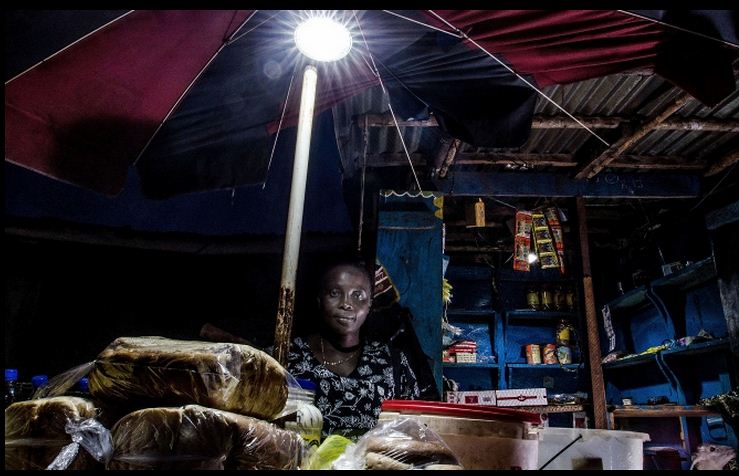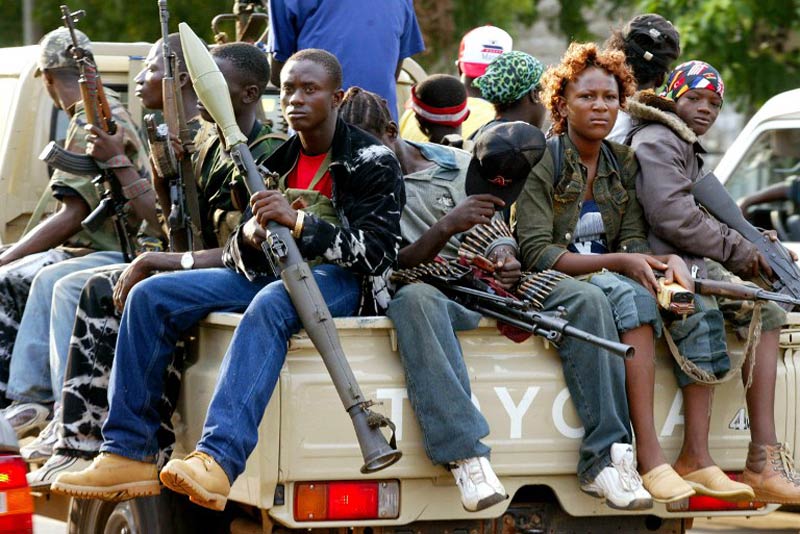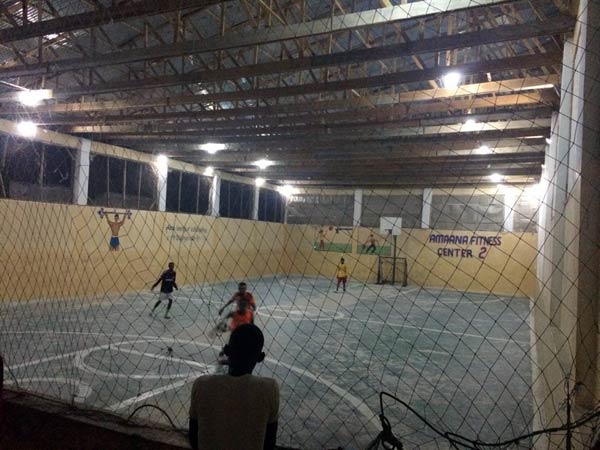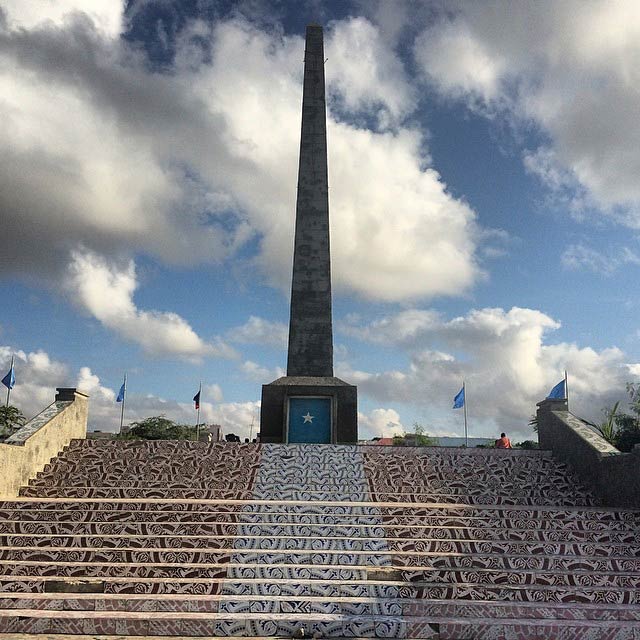I need a hero
I’m holding out for a hero ’til the end of the night
I was a black schoolgirl once. I studied for exams, rode buses. While growing up, I ran the risk of ending up on the side panel of a milk carton. Have you seen me? But whatever my fears of kidnapping during my childhood in the US, I never could have imagined the mass abduction of over 300 schoolgirls in Nigeria, 276 of whom were still missing at last count, some reportedly sold as slaves in other countries.
Earlier this week, I was in Twitter conversation with Dr Britney Cooper and others. Cooper and I were conflicted about US military intervention but hoping something good could come of President Obama getting involved in responding to the abduction. Others in the conversation cited recent instances where concern about women and girls was used as a pretext for military invasion. I noted that when President Bush invaded Afghanistan, it was an obvious sham because he and the conservatives backing the invasion were notorious for their opposition to policies for women’s rights, both domestically and internationally. Cooper cited the “the political dangers of US imperialism” and the “need [for] a moral schema that allows us to protect Black women and girls” concluding that “we must hold these things in tension”.
I need a hero
I’m holding out for a hero ’til the morning light
He’s gotta be sure, he’s gotta be soon
And he’s gotta be larger than life, larger than life

I want to believe Obama is different. Isn’t he black enough, Kenyan enough, progressive enough? And I opposed US military intervention in Afghanistan and Iraq and Iran and Pakistan and Syria and Korea… but maybe it could be different this time. I could not accept that hundreds of young Nigerian girls could just be carted away. One leader of a Nigerian elders group spoke out against Nigeria’s own military inaction: “The free movement of the kidnappers in a huge convoy with their captives for two weeks…is unbelievable.”
I need a hero
I’m holding out for a hero ’til the morning light
Obama has a black wife, black schoolgirl daughters, a Kenyan grandmother. Can’t we trust our Soul Brother commander-in-chief to rescue the damsels and not slip in Shell oil slicks? Isn’t it possible that the same US military with an epidemic history of rape problems could somehow be a rape solution in Africa?
I need a hero
I’m holding out for a hero ’til the end of the night
He’s gotta be strong, he’s gotta be fast
And he’s gotta be fresh from the fight
I should know better. I’m Puerto Rican, a daughter of the US’s eyesore present day colony since 1898. So before I could take a definitive position, I turned to my friend and trusted colleague, Kenyan poet and playwright Shailja Patel. She sent me this article from Compare Afrique, titled ‘Dear Americans, Your Hashtags Won’t #BringBackOurGirls. You Might Actually Be Making Things Worse‘. I could clearly see that my perspective had been skewed by a lifetime of conditioning to see the US as a potential rescuer. This, in spite of my opposition to all the military intervention in my lifetime, Vietnam, Guinea-Bissau, Chile, Uruguay, Guatemala, El Salvador, Grenada, Nicaragua, Panama, Afghanistan, Iraq…
We progressives in the US, particularly those of African heritage, can be swayed by Obama’s public stances and record of improvement in various domestic social issues. However, progressive social policies at home do not correlate in any way with anti-colonial foreign policy.
Yet I had wanted to believe. I envisioned a Blaxploitation remake of Rambo that would bring Obama striding home against a backdrop of flames, fiery red bomb blast turning to smoke behind him, fainted schoolgirl limp in his arms (saved!). But I need to remember black girls will never be the Lois Lane of this tired movie. The story of black women and sexual violence has not been a tale of rescue. Ain’t nobody gonna spin the world backwards, restore our hymen, return the blood to the capillaries in an unlacerated vulva. Our story is of endurance, and survival, and healing.
To remix Audre Lorde: the coloniser’s army will never dismantle the legacy of the coloniser’s brutality. Perhaps all of us Afro diasporans in the US, hearing about the abduction and violence against African girls, wanted something other than silence, other than business as usual. We have nightmares of our own, from the recent outrage with R. Kelly’s Black Panties album, and the latest in-depth revelation of his one-man sexual violence crusade against black girls in US, we are desperate for someone in a position of influence to notice and intervene. We want someone powerful to #BringBackOurGirls. If only it were that simple.
And we already have our heroes: 53 girls who escaped from the gunmen. When the bus broke down, “some of us jumped out of the vehicles and ran into the bush”. According to the 17-year-old girl who spoke to the LA Times:
“I and two other girls were close together [cooking], speaking softly, and we came up with a plan.”
The girls told the gunmen they needed to relieve themselves….
“As soon as we were out of sight of the gunmen, we fled…”
Eventually, the three stumbled across a group of Fulani herders, who rescued them.
The Fulani herders didn’t rescue them. Those girls rescued themselves when they decided to run. I claim Nigerian schoolgirls – scared teenagers who jump off buses, who stick together and plot escape while cooking for their captors, who stand up to and outwit grown men with AK-47s – as the heroes of this story.
I just hope that if one day one of them is in a position to be the first woman president of Nigeria, and proposes economic measures that would uplift her people – at the expense of US and multinational corporations – that whoever is president of the US doesn’t send the military in to assassinate her.
Aya de Leon (@ayadeleon) is on the faculty of the Afro Diaspora Studies Department at UC Berkeley. She writes, blogs, and tweets frequently about issues related to race, gender and colonisation at ayadeleon.wordpress.com. This post was first published on Rise Africa, a blog written by a group of individuals who seek to create an atmosphere that encourages conversation between Africans on the continent and in the diaspora. Connect with them on Twitter: @riseafrica




